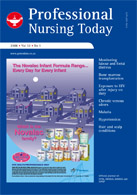The nurse's experience of exposure to possible HIV infection after an exposure/injury on duty
Keywords:
Occupational Health, Sharps-related injuries, Original research, HIV-exposure
Abstract
This article reports on the results of research to describe the experience of nurses who had been exposed to possible HIV infection during injury or exposure on duty. Staff were included in the study after exposure to blood and human body fluid. The exposures varied between stabbing with a used scalpel, needle prick injuries, contact between blood and broken skin, as well as two cases of exposure during unprotected cardiopulmonary resuscitation, which took place in the hospital’s public parking area. A qualitative phenomenological descriptive study was used to describe the emotions and non-verbal reactions of participants during two subsequent interviews, three months apart. These interviews were conducted post-exposure, and after counselling and prophylactic treatment had taken place. It was found that the exposed staff’s experience presented with two main features. Firstly, they were grieving due to the loss of the concept of being healthy, blessed with adequate nursing skills and definite goals in life. The bereavement process included phases of denial, anger, anxiety and fear, with recurring thoughts regarding the adverse events, as well as acceptance, which developed with time. This bereavement process and shock of the exposure had wider consequences to the family, as well as an impact on the working environment. The second category of experience was the physical side effects which participants developed due to the prophylactic antiretroviral therapy. An important emotional portion of this part of the study was the anxiety and fear of the side-effects of treatment demonstrated by all the participants before therapy commenced. If healthcare services wish to retain nursing staff in future, more will need to be done to prevent all types of exposure-on-duty; and, if they do occur, to anticipate, manage and shorten the subsequent period of the professional nurse or learner’s bereavement.
Published
2008-03-20
Issue
Section
Infection Control/Communicable diseases
By submitting manuscripts to PNT, authors of original articles are assigning copyright to Medpharm Publications (Pty) Ltd. Authors may use their own work after publication without written permission, provided they acknowledge the original source. Individuals and academic institutions may freely copy and distribute articles published in PNT for educational and research purposes without obtaining permission.

